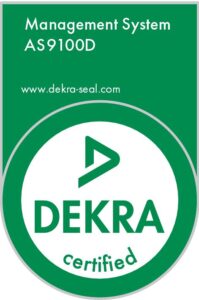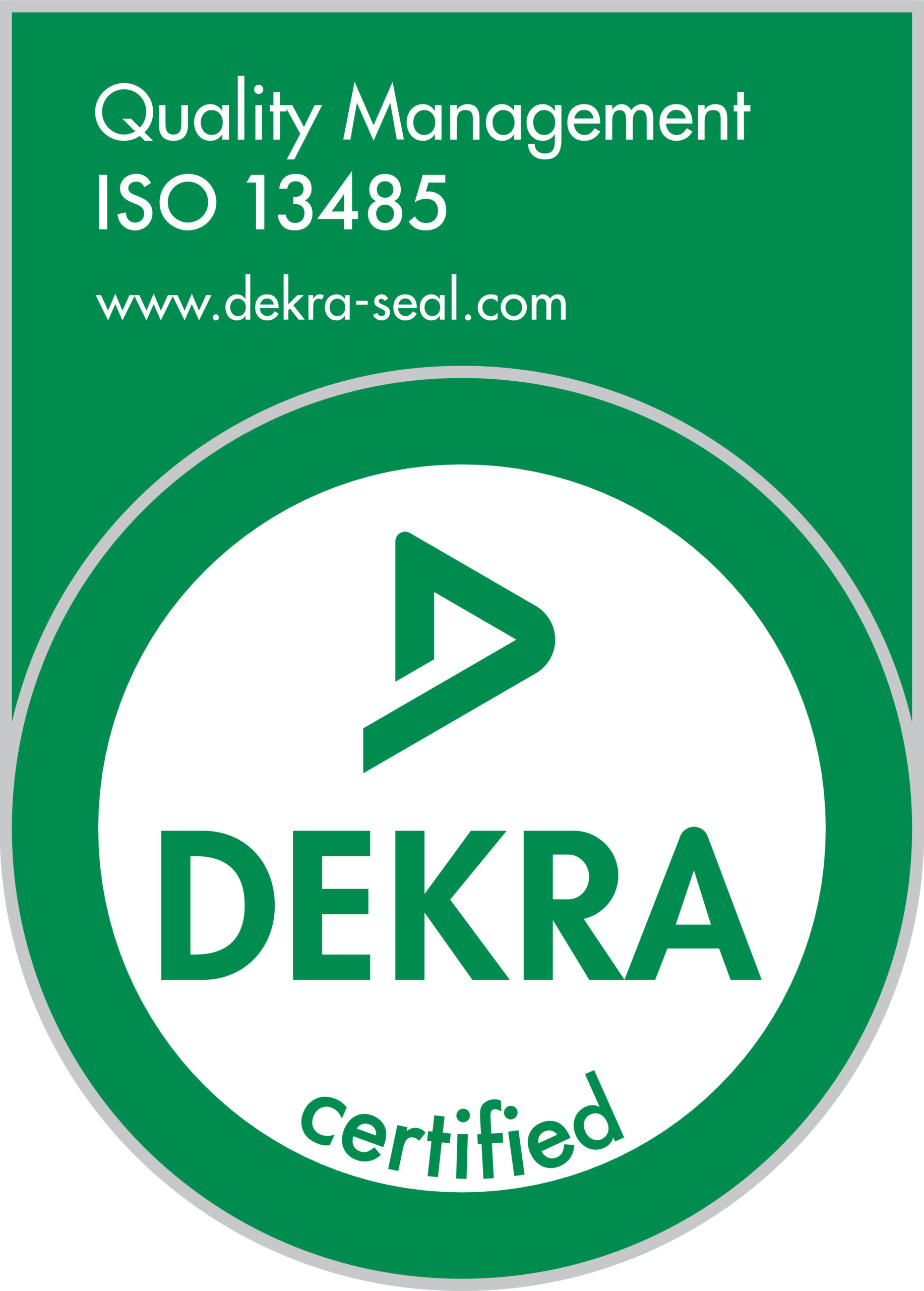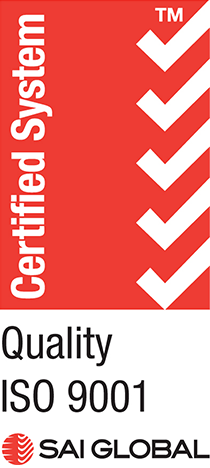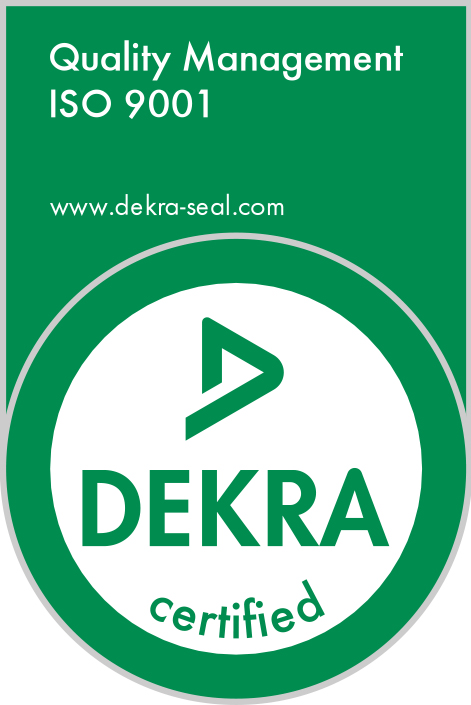Medical, oil & gas, aerospace & defense, and energy companies rely heavily on machined parts from fasteners to parts components. Furthermore, the demanding nature of these industries, like energy, or oil and gas, means you will need every oil & gas industry fastener to withstand the harsh conditions and frequent usage. On the other hand, in fields like medical and aerospace, you want highly precise parts as there is no room for error. That’s why manufacturing quality standards are vital for any custom fastener manufacturer.
Firstly, at B&G Manufacturing, our quality credentials guarantee you that our products are of the highest quality, safe, and designed and manufactured through the best manufacturing processes vetted by independent third-party regulatory bodies. Given that, these manufacturing quality standards not only separate us from other bolts and nuts suppliers but, more importantly, protect our clients in the following ways:
1. They are assured of the product’s quality
For example, our quality credentials; such as certifications and accreditations, show that we follow strict quality standards and procedures. These standards and procedures help ensure that our products meet the required specifications and quality standards. By ensuring product quality, we protect our clients from receiving faulty or substandard products that can cause damage or harm to their equipment or end-users.
2. They know the parts meet regulatory requirements
Many industries have regulatory requirements that specify the quality standards that products must meet. Fastener manufacturing companies with quality credentials can demonstrate to clients that they meet these regulatory requirements, assuring that their products are compliant and safe to use.
3. They enjoy our enhanced supply chain efficiency
Notably, our certified and robust quality management system enhances our supply chain efficiency. By adhering to quality standards and using quality control processes, we reduce the risk of production delays, material waste, and product recalls. Therefore, our clients receive their critical fasteners on time, with minimal defects or issues, and reduce the risk of supply chain disruptions.
4. Compliance with safety standards:
In general, many industries requiring titanium precision parts have safety standards that products must meet to ensure they are safe. Overall, our quality credentials demonstrate that we follow these safety standards, which ensures that our clients’ products are safe for their intended use.
5. They benefit from our control process
With this in mind, stainless steel fastener suppliers with quality credentials often have robust quality control processes to ensure that products meet required specifications and manufacturing quality standards. These processes can help identify and correct potential safety or efficiency issues before releasing the products.
What Are Our Quality Credentials?
We have over 10 quality national and international quality credentials. Our top ones include;
1. The Nuclear Quality Assurance-1
First and foremost, The NQA-1 is a quality assurance standard developed by the American Society of Mechanical Engineers (ASME) for the nuclear industry. It provides requirements and guidelines for establishing and implementing a quality assurance program to design, construct, and operate nuclear facilities and activities. The NQA-1 is widely regarded as one of the world’s most stringent quality assurance standards.
2. The ANSI/NCSL Z540.3 Standard
Equally important, The ANSI/NCSL Z540.3 Compliant standard is a standard for calibration and testing laboratories jointly developed by the American National Standards Institute (ANSI) and the National Conference of Standards Laboratories (NCSL) International. Compliance with the ANSI/NCSL Z540.3 standard is voluntary. Still, it can assure customers that a calibration or testing laboratory has implemented a quality management system that meets recognized industry standards. Compliance with the standard can also assure that measurement results are reliable and accurate, helping to reduce the risk of errors and incorrect decisions based on measurement data.
3. ISO 9001:2015 Certification
Additionally, the ISO 9001:2015 Certified quality standard is a set of international standards developed by the International Organization for Standardization (ISO) that provide guidelines for establishing, implementing, and maintaining a quality management system (QMS). The ISO 9001:2015 standard is the latest version of the ISO 9001 series, which was first published in 1987 and has since been updated several times.
4. The AS9100D Certification
The AS9100D certification is a quality management system (QMS) standard explicitly developed for the aerospace industry. It is based on the ISO 9001 quality management standard but includes additional requirements and expectations specific to the aerospace industry. The AS9100D certification is the latest version of this standard and was released in 2016.
The AS9100D standard is intended to ensure that aerospace products and services meet the high quality and safety standards required by the industry. It covers all aspects of the aerospace industry, including the design, development, production, installation, aerospace fastener companies and maintenance of aerospace products and services.
5. The Fastener Quality Act (FQA)
Lastly, The Fastener Quality Act (FQA) is a US federal law enacted in 1990 to ensure the quality and safety of fasteners used in critical applications such as automobiles, aircraft, and infrastructure. The law requires that certain types of fasteners, including safety fasteners, bolts, screws, nuts, and rivets, be manufactured to specific standards and be appropriately labeled to indicate their strength and other properties.
To be FQA Compliant, fastener manufacturing companies must undergo regular audits and inspections by an independent third party to ensure that their quality control system is functioning correctly and that the fasteners they produce meet the required standards. The FQA Compliant standard includes requirements for material testing, dimensional and mechanical testing, and identification and traceability.
Ultimately, our commitment to quality in precision parts manufacturing means you can be assured that all the parts and components you get will work as intended and for longer. The quality credentials also allow us to cover broader markets and a range of products so you can get all your needs in one place. So contact us today to get your process started.


 Hatfield
Hatfield

